Lexus unveils new RC Coupe at Tokyo Motor Show

Lexus today unveiled its new production-ready RC coupe at the Tokyo motor show, a car designed to raise awareness of the brand with a wider audience and imbue it with even stronger emotional appeal.
RC is part of a ride and handling revolution at Lexus, something which began with the latest-generation GS and gained further momentum with the launch this of the new IS. Although it's built on the GS platform, the RC is not simply a two-door derivative of a saloon, but differs in all its dimensions from the GS and IS.
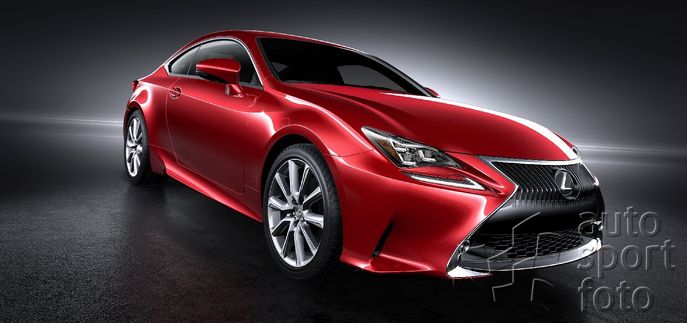
Two versions were revealed: the RC 350, with a 3.5-litre V6 engine teamed with an eight-speed sequential transmission; and the RC 300h hybrid, with a 2.5-litre petrol unit.
Chief Engineer Junichi Furuyama, who also leads the IS programme, said the aim is for the RC to engage with owners on an emotional level: "One of the main reasons motoring enthusiasts aspire to own coupes is that they look cool, sexy even. We developed the RC to deliver the kind of extra responsiveness that drivers find exhilarating, not overwhelming, true toomotenashi - the traditional Japanese spirit of hospitality."
Mark Templin, Executive Vice President Lexus International, said: Our focus is to strengthen the brand's emotional appeal through our products and the RC is another demonstration of this.
"The emotional attachment people make with a coupe is rooted in purity of design and the driving experience. With the RC our engineers have got that balance right."
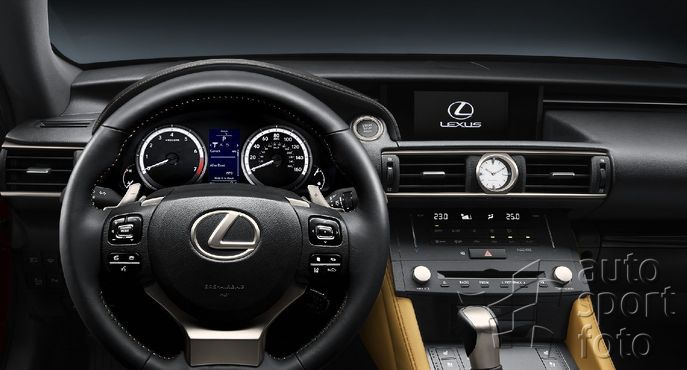
Exterior design
The designers have endowed the RC with deeply contoured lines and crafted the widest and lowest-set interpretation yet of the Lexus spindle grille.
In terms of size, it occupies a unique position in the Lexus range, measuring 30mm wider, 35mm lower and 70mm shorter in the wheelbase than the IS saloon, giving it a classic coupe stance.
Triangular headlamps capture the sporty characteristics of the earlier LF-LC concept, along with the novel three-lamp LED configuration that was part of the show car's design. Both front and rear lighting units use the Lexus L design motif.
The aluminium wheels further express the concept-to-production design philosophy, with two designs: a deeply sculpted, 10-spoke 19-inch wheel and a muscular, five-spoke 18-inch version. Both are precision-machined and finished with elegant black and platinum caps.
The hero colour for the RC is red, with a new Lexus painting process giving brighter and stronger contrasts through using multiple layers of clear and deeper-coloured coating.
The RC measures 4,695mm long, 1,840mm wide and 1,395mm high, with a 2,730mm wheelbase.
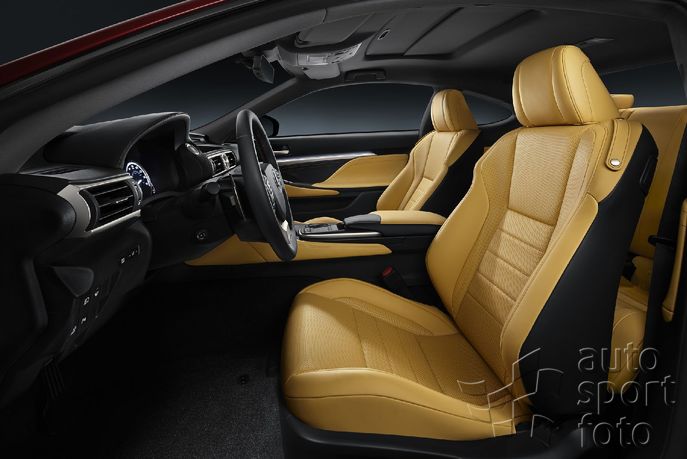
Interior design
The four-seat interior of the RC is strongly influenced by Lexus's sports concepts, reflected in the extensive use of contrasting colours, materials and lighting.
The purpose-designed lighting package gives a sense of occasion, with illumination that reflects upwards rather than down to envelop the cabin.
The high-contrast interior colours emphasise the elegant lines around the interior, together with shimamoku highlights - a genuine wood finish created using an intense layering technique refined by Lexus.
The driver's cockpit follows the established Lexus design principle of an upper operation zone and lower display zone. The upper zone houses the instrument panel and seven-inch navigation screen; lower down the layered centre console integrates the Remote Touch Interface controller.
The seats are made using an integrated foaming construction, similar to the moulding technique used for racing seats, to provide excellent comfort and support.
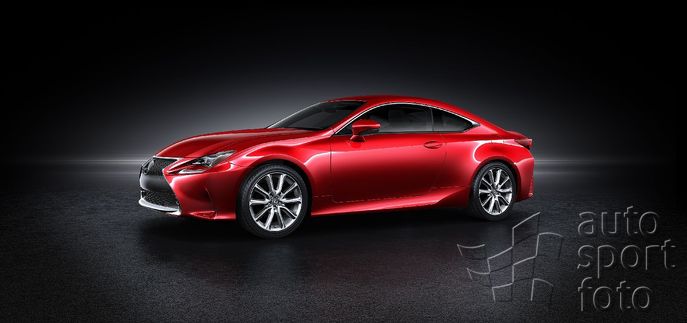
Driving dynamics
The RC's strong and purpose-built chassis represents the latest stage in Lexus's missions to deliver a world-class driving experience, building on the advances made with both the latest GS and IS models.
Extra-thick underbody rocker panels greatly increase the car's rigidity and enhance its driving performance. Lexus has also used new manufacturing techniques it pioneered in the LS and IS models, including the use of innovative body adhesives, to strengthen the chassis.
Aerodynamic aids, especially those featured on the RC's underbody, also contribute to the handling package. The suspension design features front double wishbones a multilink system at the rear.
Powertrains
The RC V6's specific output per litre is second only in the Lexus range to the LFA. The dual-injection 3.5-litre petrol unit produces a maximum 314bhp (234kW) at 6,400rpm and peak torque of 380Nm at 4,800rpm.
The eight-speed Sports Direct Shift transmission with paddle shift controls is adapted from that used previously in the IS F, optimised for power delivery and economy. In M (manual) mode, full torque converter lock-up from second to eighth gear allows for downchanges in just two tenths of a second.
The hybrid - the first Lexus hybrid coupe - uses a dual-injected 2.5-litre four-cylinder petrol engine with a 141bhp (105kW) electric motor driven through an electronic continuously variable transmission (E-CVT) with a shiftmatic function providing six step-gears.
According to market, RC will be offered in front-wheel or all-wheel drive configuration. Further details of European powertrain line up will be announced in 2014.
The sound generated by the engine has been specially tuned to add to the coupe driving experience.
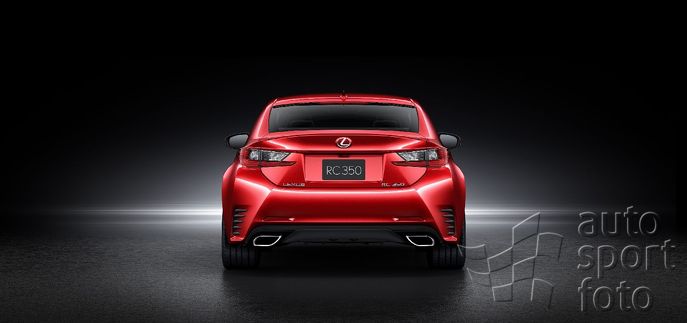
Advanced technologies
Advanced technology features in the RC include an upgraded version of Lexus's Blind Spot Monitor and a new iteration of the Remote Touch Interface controller.
The RC will be the first model to be fitted with the improved Blind Spot Monitor, capable of detecting vehicles approaching from behind at a higher speed and from a greater distance than before.
Lexus's innovative Remote Touch Interface for controlling audio and navigation systems has been revised, improving the overall tactile reaction that is all part of the engaging driving exerience.
Diskusia k článku
Najnovšie galérie
































 Matúš
Matúš 
 Peter
Peter  Colin
Colin 
 Ján
Ján  Walter
Walter 